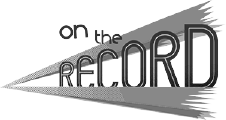Barbara Schulz
I think it was of value to a lot of young people, of totally different walks of life. There was a, there was loads of us that would go in in the end. Yeah, like, you’d meet everybody, and people would come in. There was Rastafarians, there was skinheads, there was like, you know, sort of, hippies, there was, you know, sort of, punks. There was mohicans. There was like, all different type- We were all a totally, if you saw us, we were a right mishmash of people, totally, you would never expect us all to be together. And we were, because we were just, like, a really good group of people at the time. And Centerprise did that, it brought us all together. Whereas on the streets, the skinhead would probably beat up the punk, you know, would beat up the, you know, the black person up the road. But it was totally different with all of us, we all got on, you know, and we’d all try and support each other when there were bad times. There were sometimes bad times, when the skinheads were a bit glued-up and, there would be certain issues and, you know, but then we’d be able to bring, bring each other together and talk each other round, and be supportive to each other, and… You know, and I think, we all learnt skills from being around Centerprise, and knowing that, although some of us are angry at some time, we’d always come there and we’d treat it with respect, most of the time.
As a teenager in the early 1980s Barbara Schulz went to Centerprise with her friends because it was ‘somewhere that we felt was quite safe, they didn’t throw people out, we didn’t have to spend lots of money.’ Barbara’s life was unsettled; she ran away from both home and school around this time. At Centerprise she joined groups: the Girls’ Project and later the Centerprise Young Photographers and the Hackney Unemployed Media Scheme (HUMS). Young people were encouraged to take ownership of their projects; deciding together what they would do and each taking on a different role. She was especially interested in photography, mentored younger people in the Centerprise Young Photographers and worked with other members of HUMS to produce the magazine Starting Out.
As she got older Barbara worked part time in the café, bookshop and as a sessional youth worker, experience she would build on to become first a youth worker, and then a teacher. She took part in the workers’ collective and remembers the Monday meetings as often going ‘over my head’, although as her first experience of working life she found the collective very influential and remains committed to co-operatives. She says ‘I still find hierarchy really agonising, it irritates the hell out of me.’
Barbara gives a moving account of the important role Centerprise played in increasing her confidence, exposing her to new ideas and ‘helping me grow as a person’. She says ‘after a while it wasn’t a safe haven, it was just somewhere that I was part of’. She stayed involved for around 13 years, leaving as Centerprise changed and the people she knew drifted away.
Interviewed by Mary Mullen




